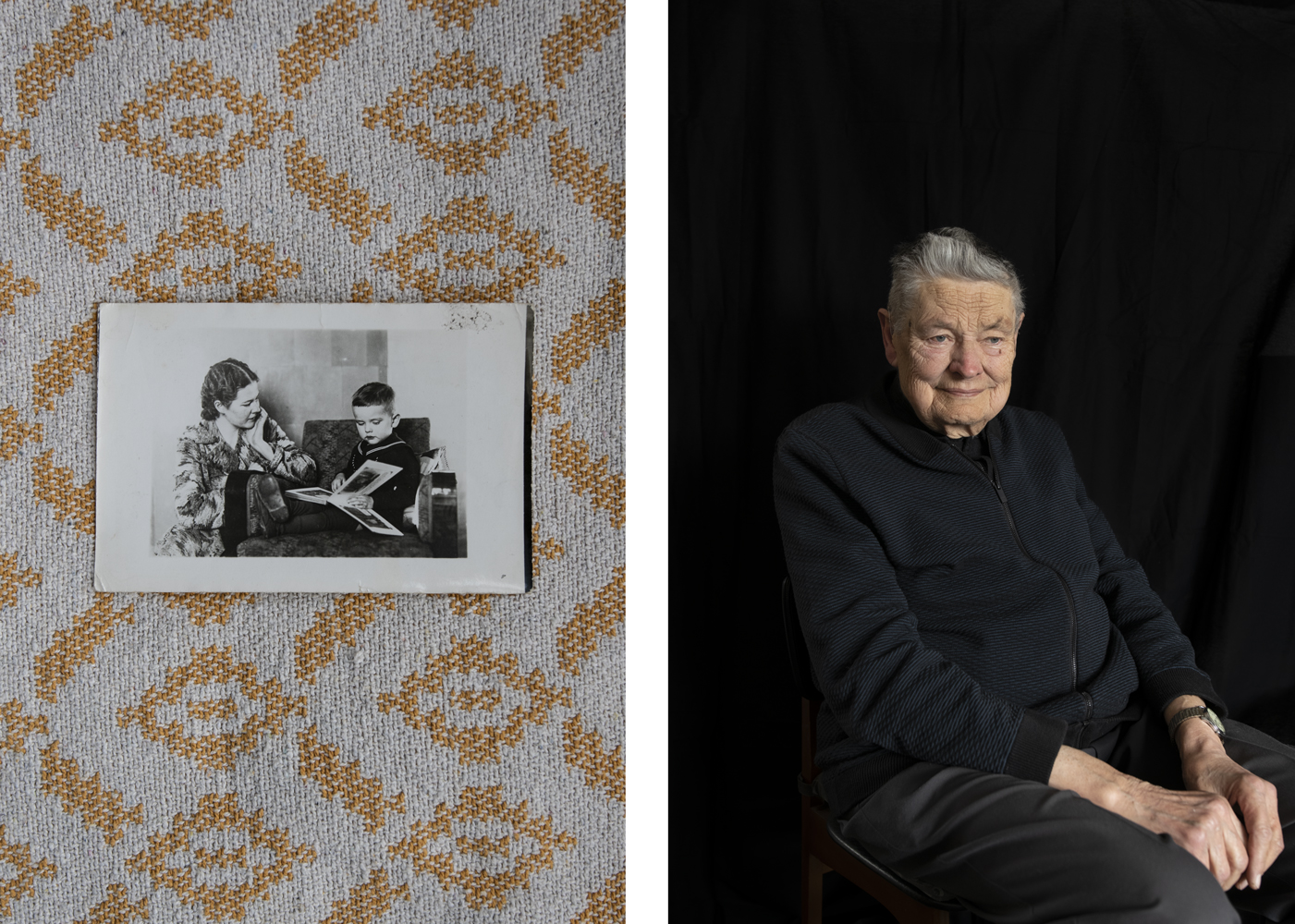
Juhan Parts
7 years old. Juhan boarded the hospital ship Moero with his
mother in 1944, fleeing his home in Estonia. Initially they were denied boarding, as the ship was full, but Juhan’s mother’s friend saw them and got them onboard. They were given cork life vests by the guards and little Juhan insisted on a ladies-sized one rather than a kid’s one. The Moero was bombed by the Russian army. Juhan remembers sliding across the deck of the ship, over the railings and into the water. He watched the ship go down with a huge gurgling sound. He was helped by two injured German soldiers, who swam with him. His mother didn’t make it.
Object
A photograph of Juhan and his mother a few years before their escape.
mother in 1944, fleeing his home in Estonia. Initially they were denied boarding, as the ship was full, but Juhan’s mother’s friend saw them and got them onboard. They were given cork life vests by the guards and little Juhan insisted on a ladies-sized one rather than a kid’s one. The Moero was bombed by the Russian army. Juhan remembers sliding across the deck of the ship, over the railings and into the water. He watched the ship go down with a huge gurgling sound. He was helped by two injured German soldiers, who swam with him. His mother didn’t make it.
Object
A photograph of Juhan and his mother a few years before their escape.
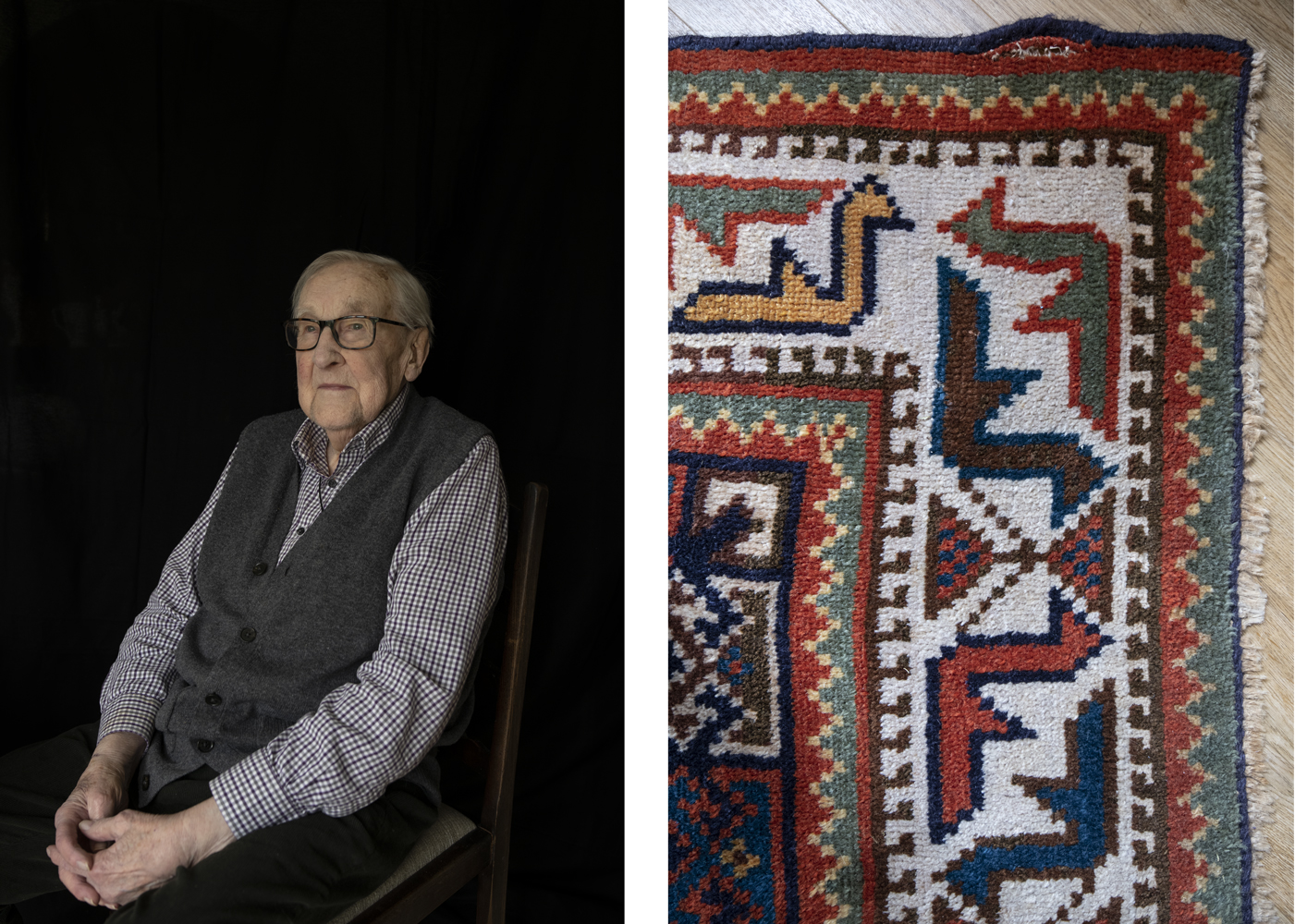
Gunnar Reiman
15 years old. Gunnar left Estonia on the ship Wartheland in
September 1944. The convoy of three ships were attacked by
the Russians and Gunnar remembers seeing a torpedo ricocheting off the water and bouncing straight through the funnel of the ship next to theirs without exploding. The hole was about a meter in diameter.
Object
The rug Gunnar’s family brought with them on the escape,
which served as their bed during the journey.
15 years old. Gunnar left Estonia on the ship Wartheland in
September 1944. The convoy of three ships were attacked by
the Russians and Gunnar remembers seeing a torpedo ricocheting off the water and bouncing straight through the funnel of the ship next to theirs without exploding. The hole was about a meter in diameter.
Object
The rug Gunnar’s family brought with them on the escape,
which served as their bed during the journey.
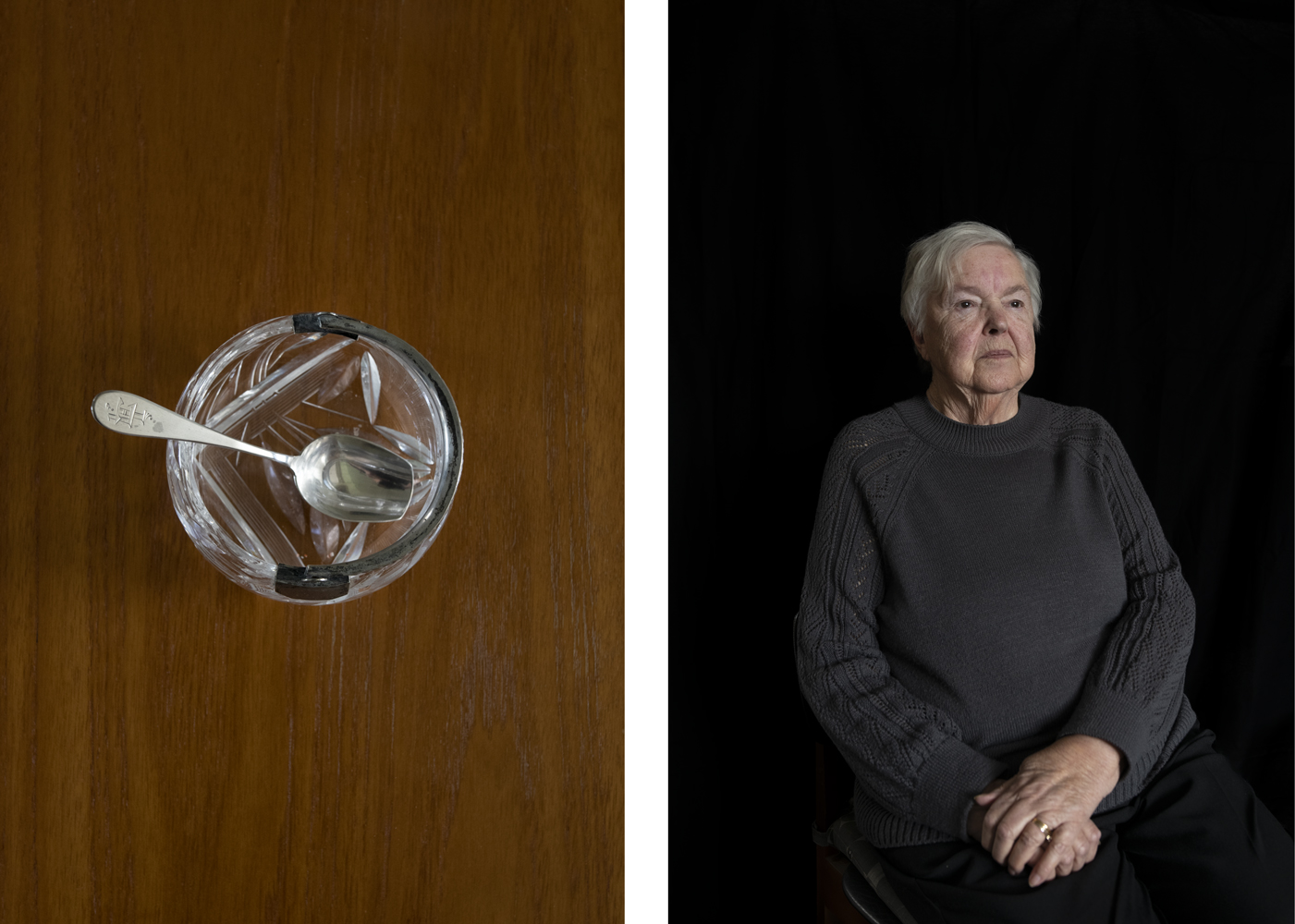
Tiina Parts
7 years old. Tiina remembers how “everything felt so loud”
when she was standing on the quayside in Tallinn with her parents and brother, waiting to board the ship Minden to Germany.
Object
A sugar bowl and silver spoon the family brought with them.
7 years old. Tiina remembers how “everything felt so loud”
when she was standing on the quayside in Tallinn with her parents and brother, waiting to board the ship Minden to Germany.
Object
A sugar bowl and silver spoon the family brought with them.
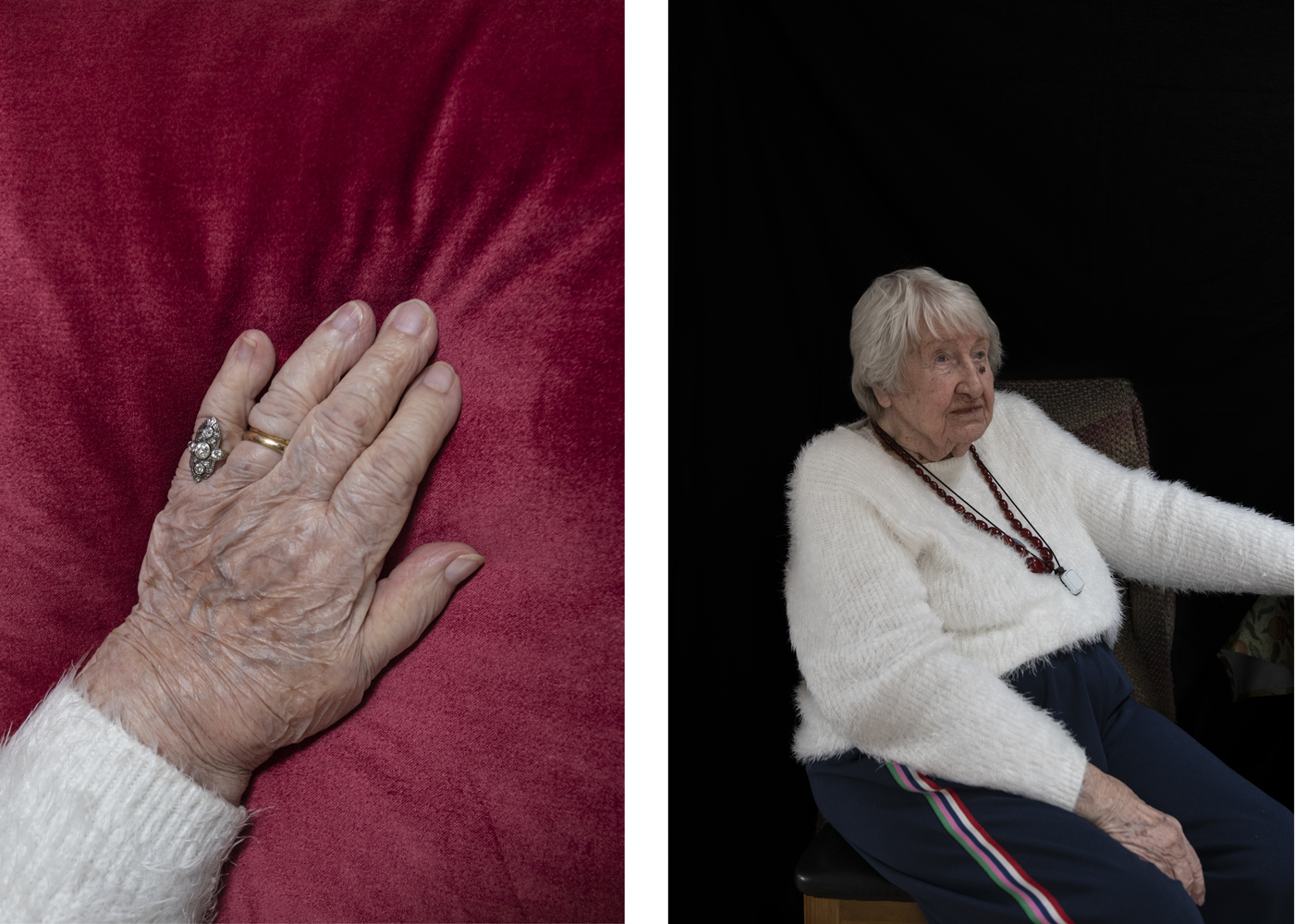
Meeri Jeckalejs
18 years old. Meeri worked for the Germans in the unemployment office in Narva. One day in 1944 her German boss told her they had to leave immediately and they drove his car through Lithuania to Latvia where Meeri boarded a ship to Germany. She remembers vomiting so much from seasickness that the captain felt sorry for her and let her sleep in his cabin.
Object
A ring that used to belong to Meeri’s aunt, who was married to the Estonian president’s security guard and was deported to Siberia in 1941. The day she was arrested, she managed to throw the ring to the family’s maid while the Russian soldier was in the bathroom. Meeri never saw her aunt again.
18 years old. Meeri worked for the Germans in the unemployment office in Narva. One day in 1944 her German boss told her they had to leave immediately and they drove his car through Lithuania to Latvia where Meeri boarded a ship to Germany. She remembers vomiting so much from seasickness that the captain felt sorry for her and let her sleep in his cabin.
Object
A ring that used to belong to Meeri’s aunt, who was married to the Estonian president’s security guard and was deported to Siberia in 1941. The day she was arrested, she managed to throw the ring to the family’s maid while the Russian soldier was in the bathroom. Meeri never saw her aunt again.
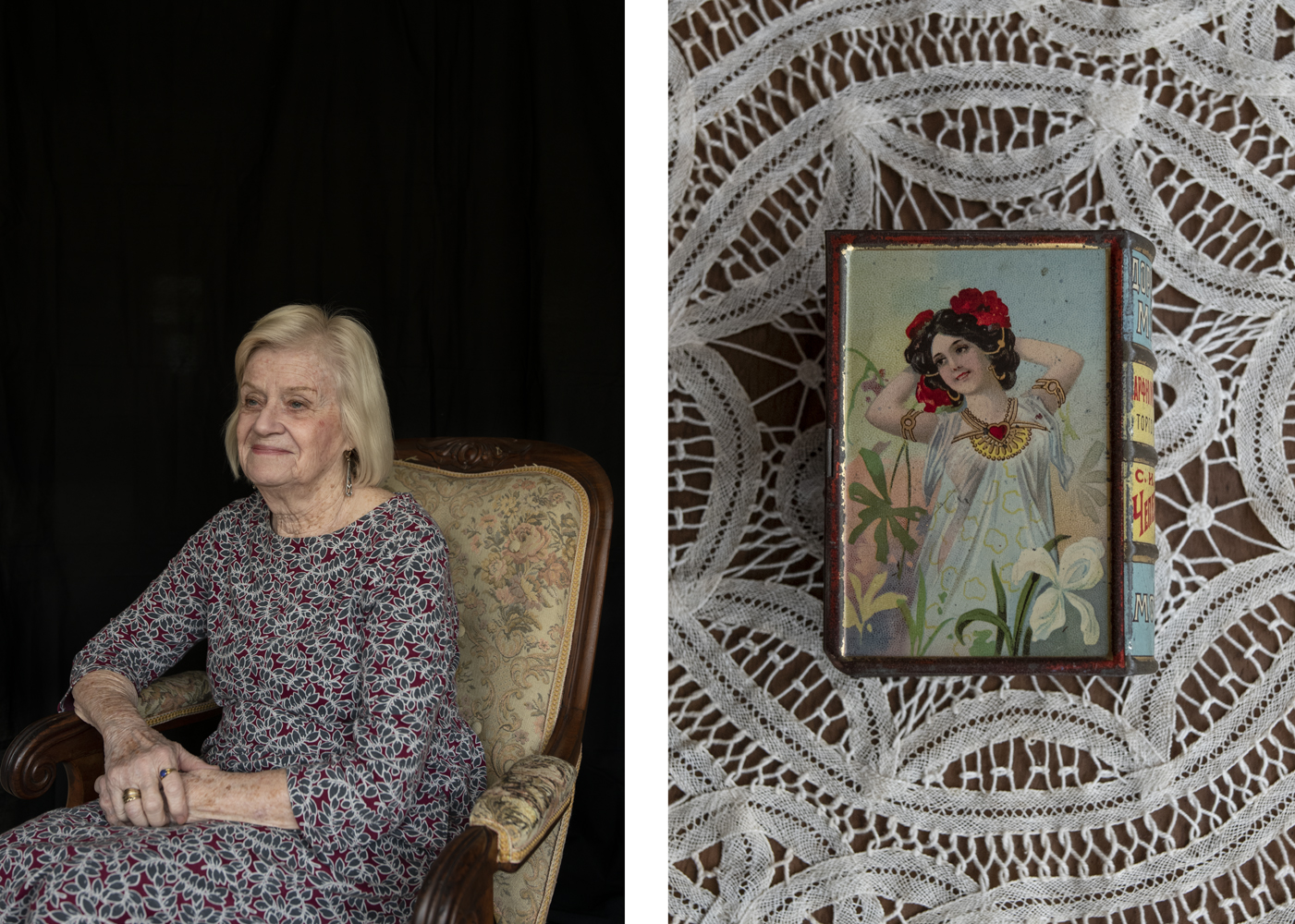
Maimu Goundar
5 years old. Maimu left Estonia with her mother and grandmother in September 1944. They tried to board the Moero but was told it was full, which probably saved their lives. Instead they found a smaller merchant ship and Maimu remembers the gangplank made from boards tied together with rope, which made her feel very scared as she climbed aboard holding her mother’s hand.
Object
A small tin that Maimu loved to play with as a child.
5 years old. Maimu left Estonia with her mother and grandmother in September 1944. They tried to board the Moero but was told it was full, which probably saved their lives. Instead they found a smaller merchant ship and Maimu remembers the gangplank made from boards tied together with rope, which made her feel very scared as she climbed aboard holding her mother’s hand.
Object
A small tin that Maimu loved to play with as a child.
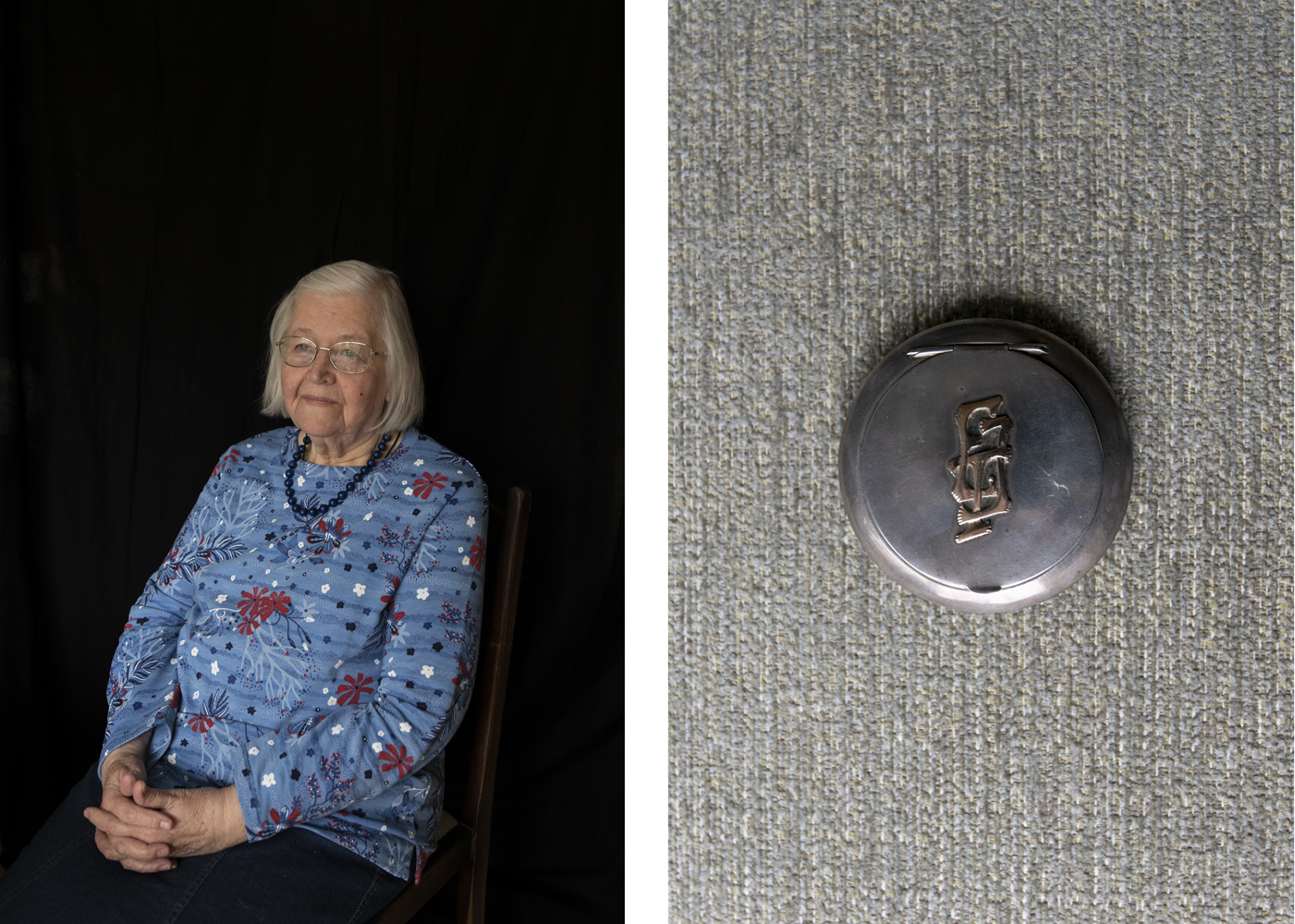
Maarja Reiman (born Toomse)
8 years old. Maarja boarded the ship Lappland in Tallinn with her parents and siblings in September 1944 (they also tried to board the Moero but was told it was full). She remembers the German soldiers being very nice and one of them gave her chocolate. Her older sister Siiri was jealous and said: “They only give you chocolate because you have plaits!”
Object
Maarja’s mother’s powder compact with her initials in gold.
8 years old. Maarja boarded the ship Lappland in Tallinn with her parents and siblings in September 1944 (they also tried to board the Moero but was told it was full). She remembers the German soldiers being very nice and one of them gave her chocolate. Her older sister Siiri was jealous and said: “They only give you chocolate because you have plaits!”
Object
Maarja’s mother’s powder compact with her initials in gold.
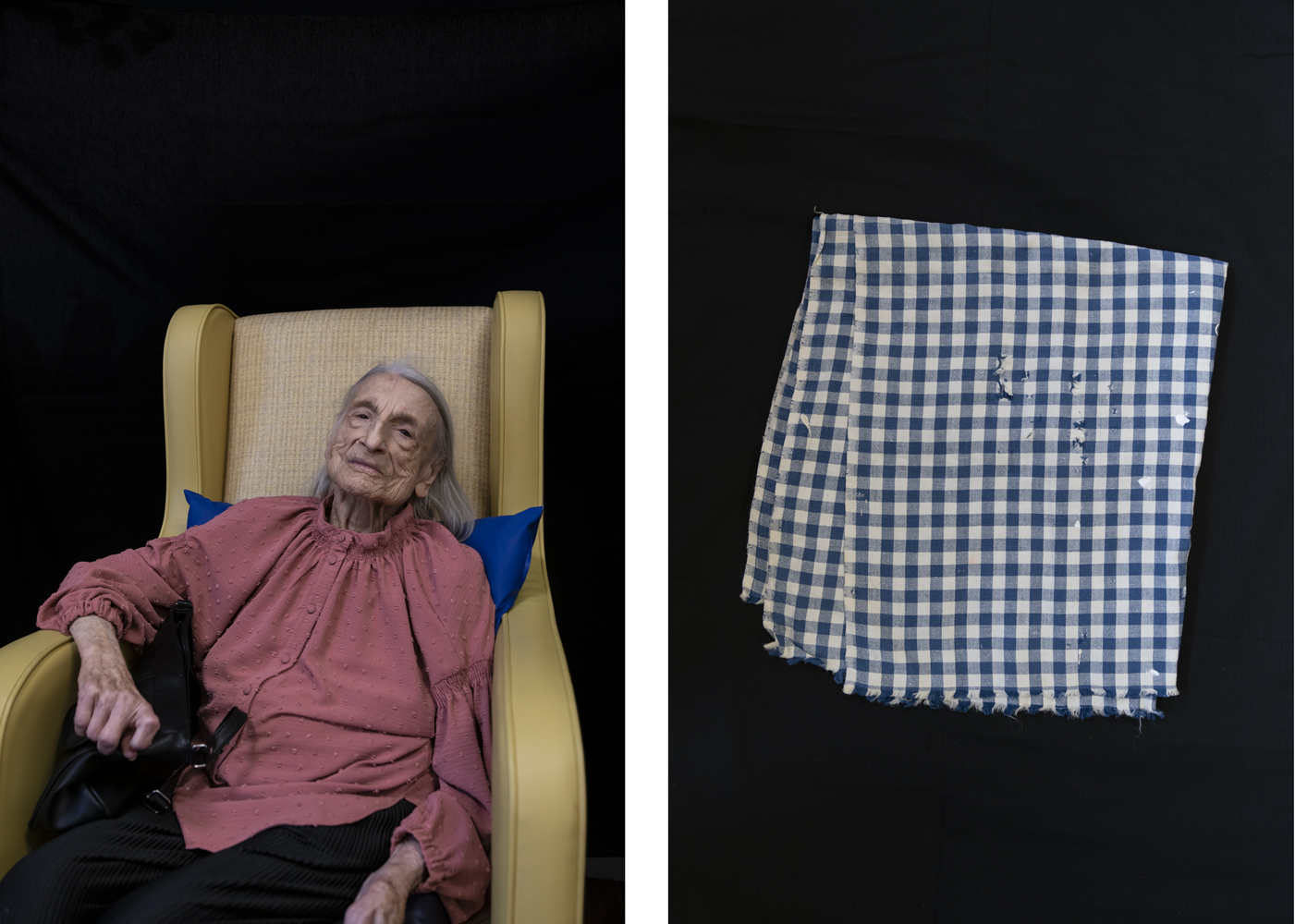
Karin Mason
12 years old. Karin and her family left Estonia under German protection in 1941. She remembers the day of departure like random slideshow pictures: A crowd assembled in a big room; the hull of a breathtakingly huge liner at the quayside; her sigh of relief steamed into the icy air as she stepped onto the gangplank under the scrutiny of a high ranking Red Army officer.
Object
A piece of gingham fabric that was one of the bedsheets provided in the Displaced Persons Camp in Berlin. Throughout the years it has been used for many different domestic purposes – to make clothes, for family picnics and to protect floors when painting walls (amongst others).
12 years old. Karin and her family left Estonia under German protection in 1941. She remembers the day of departure like random slideshow pictures: A crowd assembled in a big room; the hull of a breathtakingly huge liner at the quayside; her sigh of relief steamed into the icy air as she stepped onto the gangplank under the scrutiny of a high ranking Red Army officer.
Object
A piece of gingham fabric that was one of the bedsheets provided in the Displaced Persons Camp in Berlin. Throughout the years it has been used for many different domestic purposes – to make clothes, for family picnics and to protect floors when painting walls (amongst others).
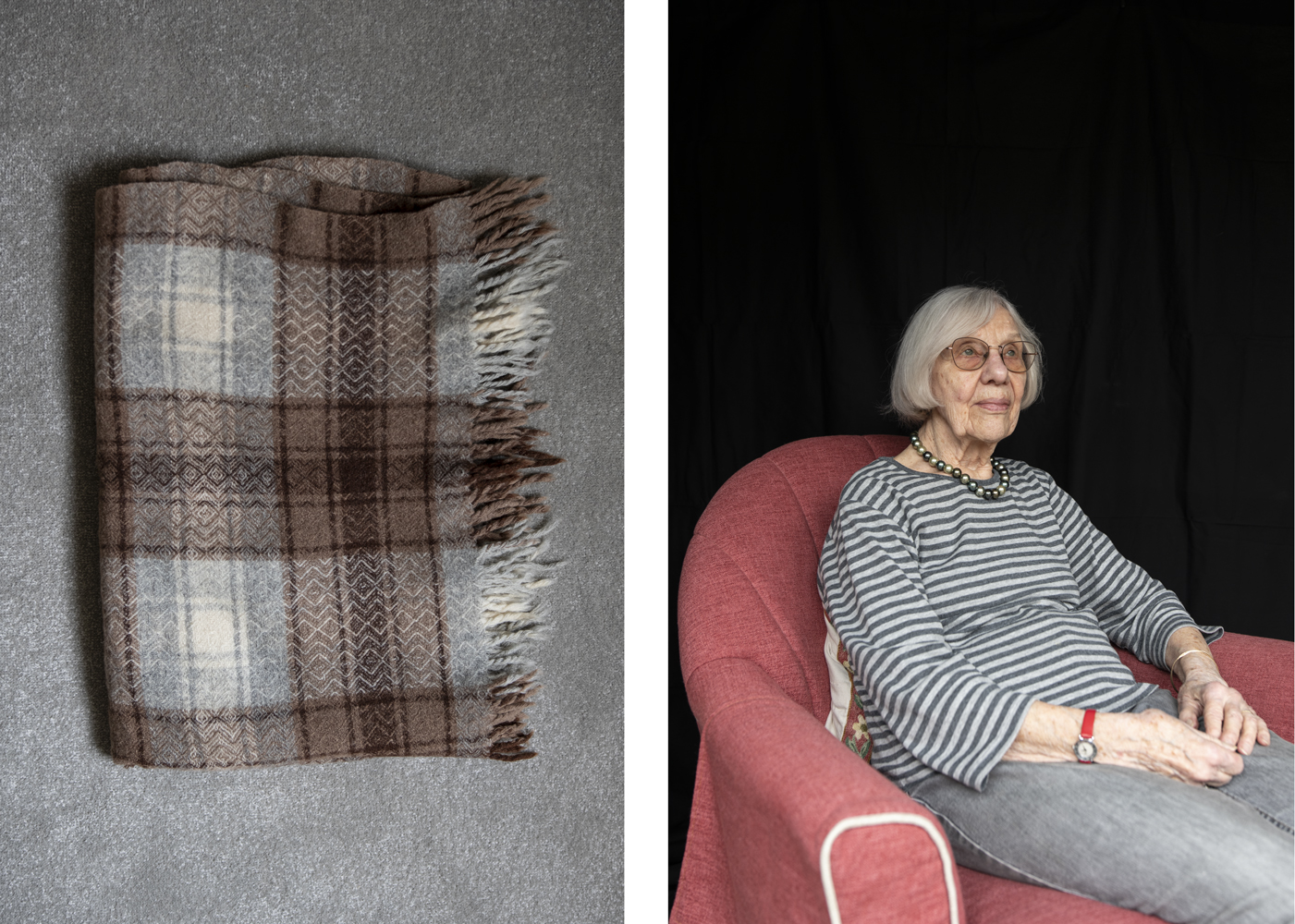
Adelies Beerman
5 years old. In 1941 a few months prior to the first Russian
deportations, Adelies with parents and family dog Dolly left
Estonia for Germany, she remembers boarding the ship.
As the ship set sail her parents planned to go on deck to
view the Tallinn panorama as it vanished from the horizon.
Adelies was told to remain in the cabin and go to bed and
not be afraid of the loud noises which would come from
the ship engines, Dolly the dog would protect her.
Object
Old Estonian rug.
5 years old. In 1941 a few months prior to the first Russian
deportations, Adelies with parents and family dog Dolly left
Estonia for Germany, she remembers boarding the ship.
As the ship set sail her parents planned to go on deck to
view the Tallinn panorama as it vanished from the horizon.
Adelies was told to remain in the cabin and go to bed and
not be afraid of the loud noises which would come from
the ship engines, Dolly the dog would protect her.
Object
Old Estonian rug.

Evi Vink
13 years old. Evi left her home in Keila near Tallinn with her
parents and younger brother on a lorry heading to Saaremaa
together with the chief of police, chairman of the county
and other important people. She remembers being so relieved
and thinking “Thank God we couldn’t bring the piano!”
as she hated practising.
Object
Evi’s pencil case from school in Estonia.
13 years old. Evi left her home in Keila near Tallinn with her
parents and younger brother on a lorry heading to Saaremaa
together with the chief of police, chairman of the county
and other important people. She remembers being so relieved
and thinking “Thank God we couldn’t bring the piano!”
as she hated practising.
Object
Evi’s pencil case from school in Estonia.